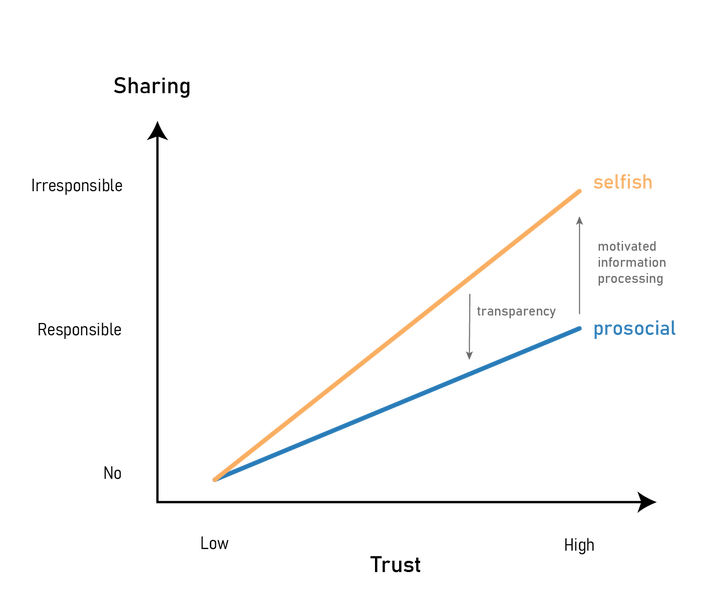
Abstract
The sharing economy is fueled by trust, which allows strangers to cooperate. To share responsibly, one needs to be aware of the various consequences sharing has on interacting and third parties. When transparency about such consequences is lacking, mutual trust among interacting parties may encourage people to cooperate and share, in turn creating unintended negative impact. Psychologists have long studied trust and cooperation, yet few insights from psychological science have been used to understand the sharing economy. Here, we propose that evoking trust may paradoxically increase motivated information processing leading people to share irresponsibly by ignoring the negative consequences sharing has on others. We review three conditions under which evoking trust may lead to irresponsible sharing: ethical blind spots, willful ignorance, and misinformation. We propose that transparent information is key to enable and encourage responsible sharing. More psychological research is needed to better understand how this flourishing, trust-based industry can be shaped to encourage safe, cooperative, and responsible sharing.